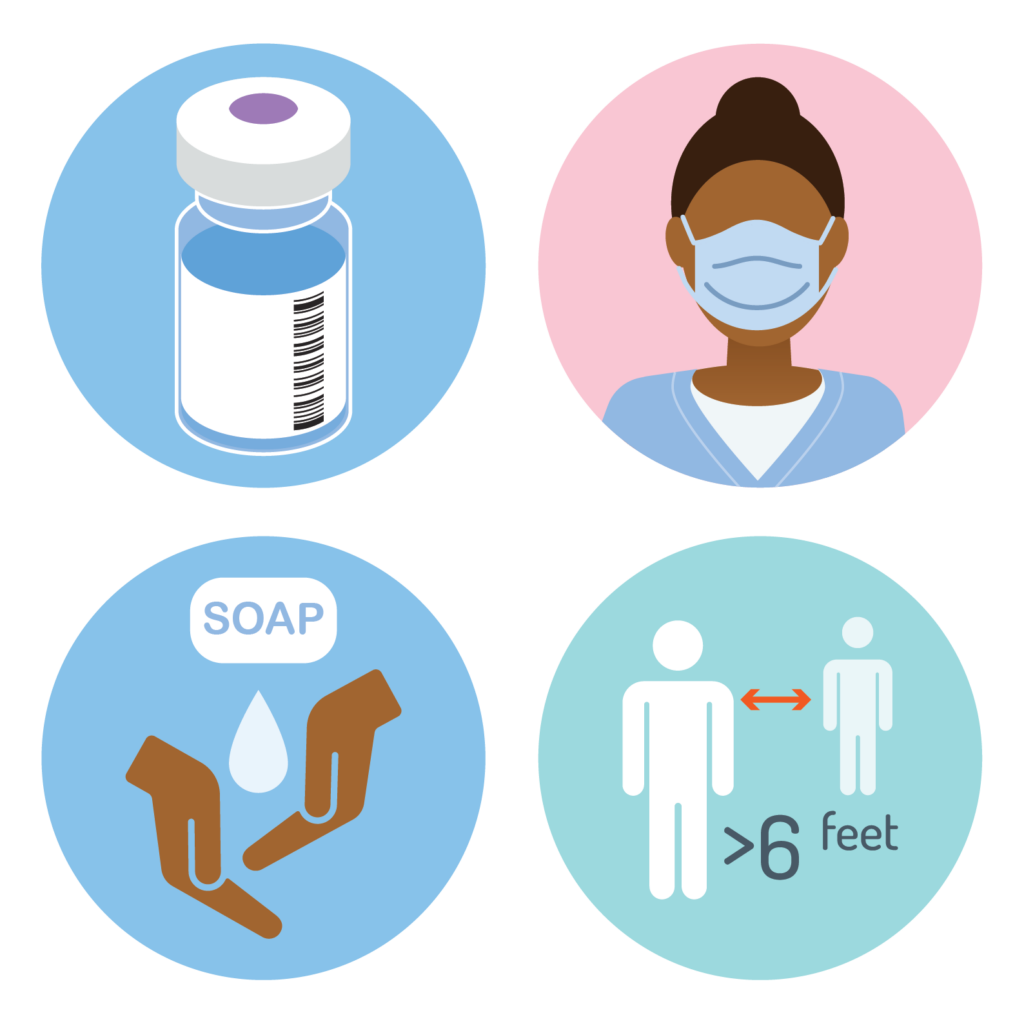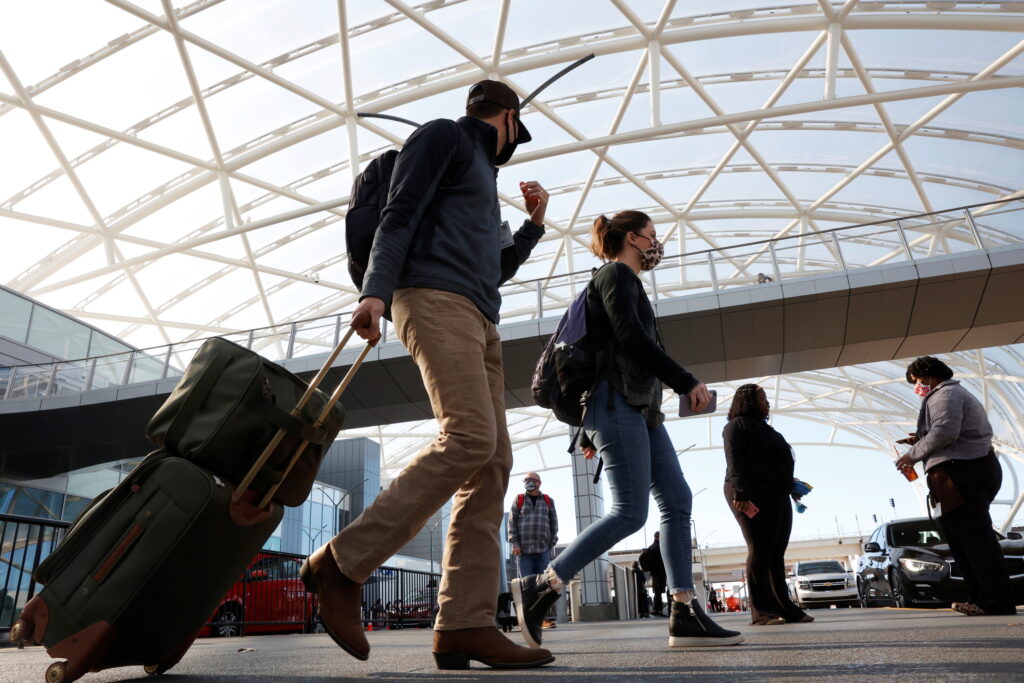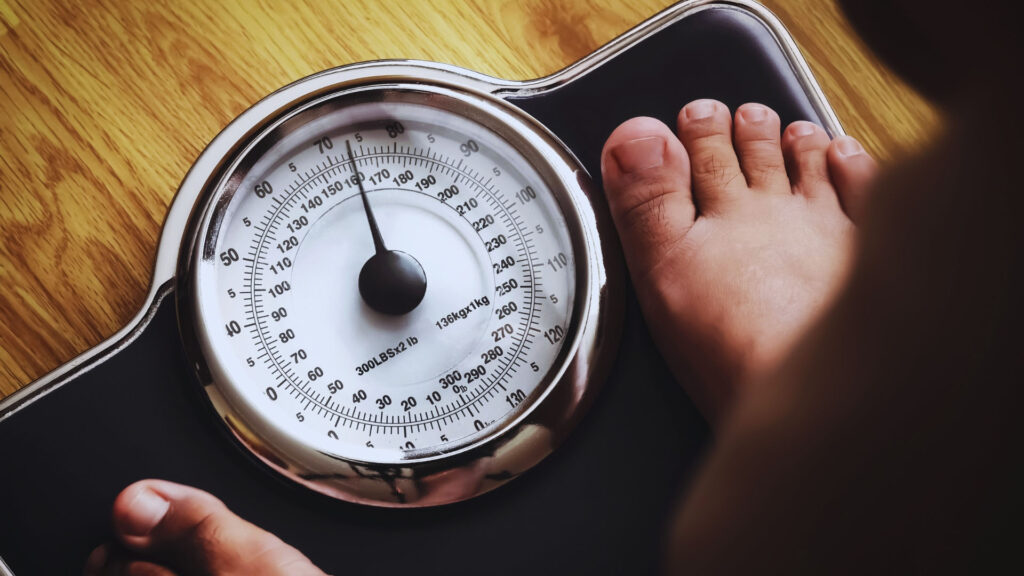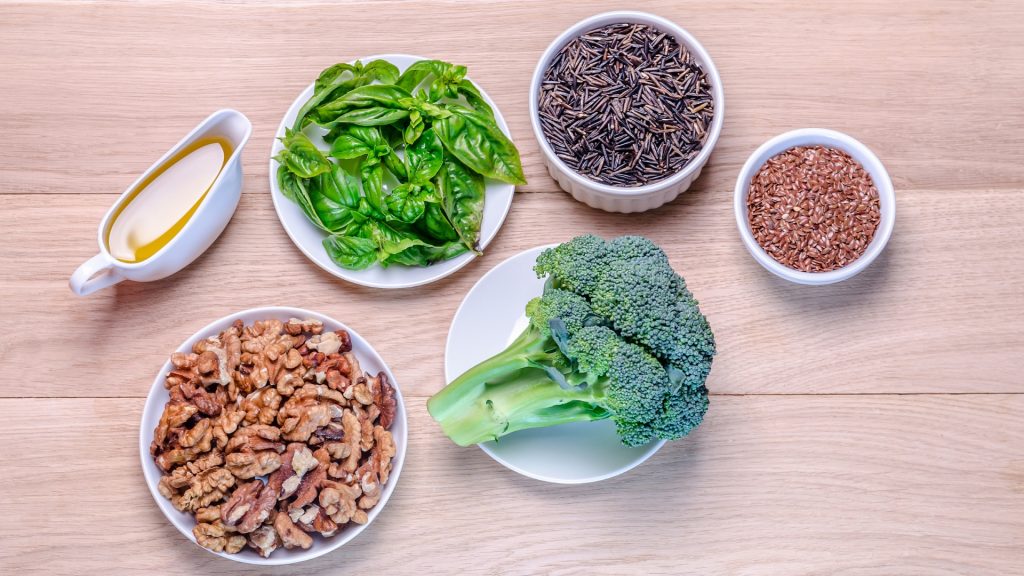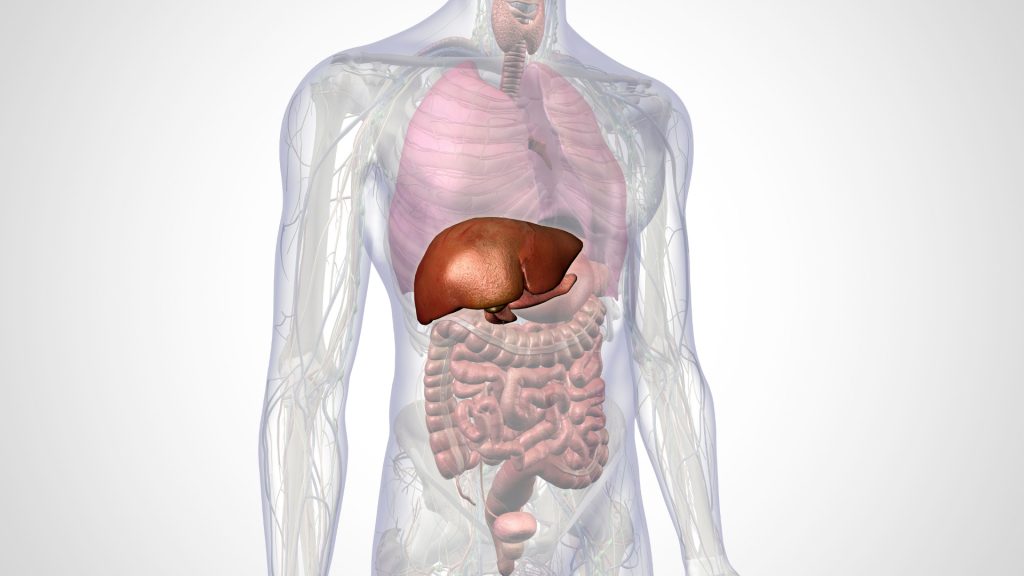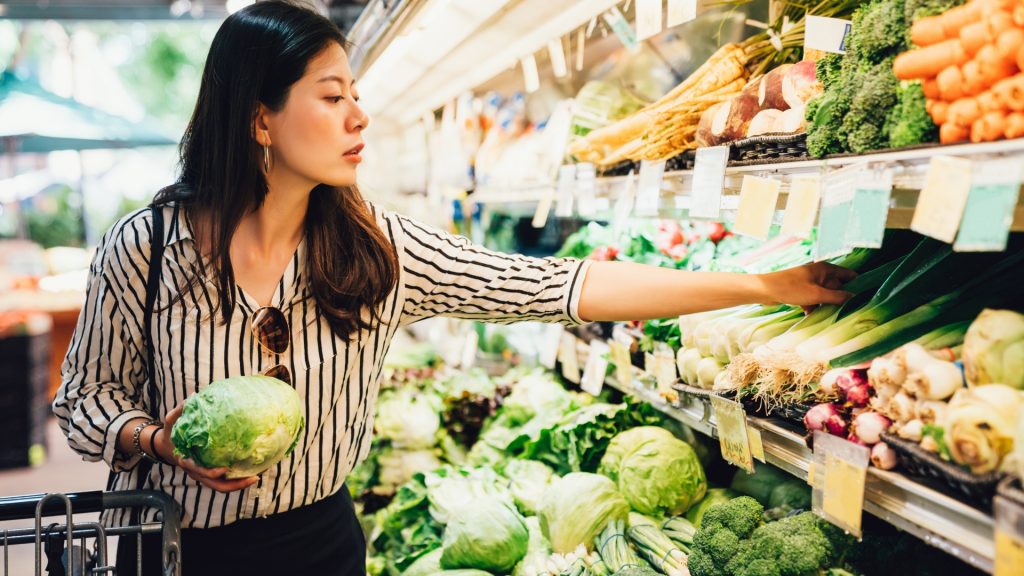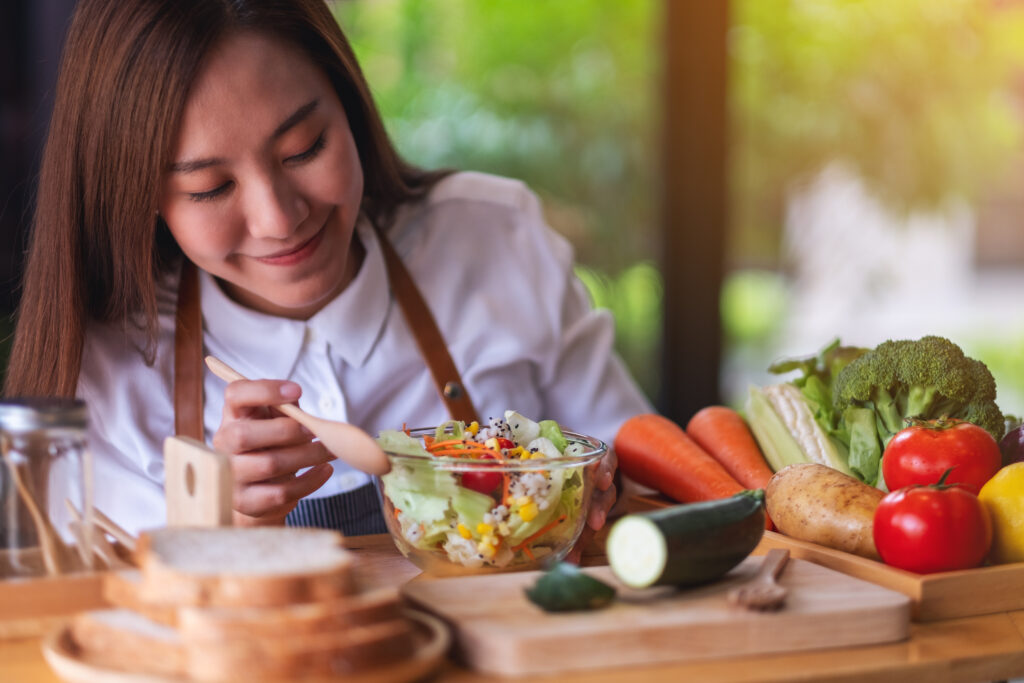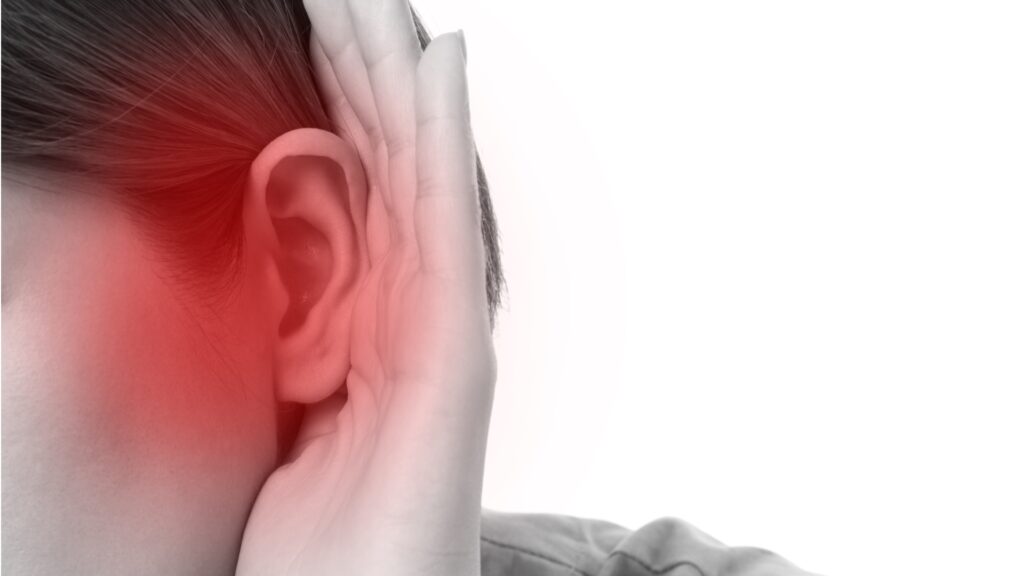Things to consider before making travel plans
Over the past few days, many fellow Malaysians have rejoiced over the opening of state and international borders for tourism purposes. Many have made plans to travel. Are you one of them?
If you’re fully vaccinated, you’re less likely to get and spread COVID-19, but travel can still increase your risk of getting new COVID-19 variants. Take precautions to protect yourself from COVID-19.
Before you travel, consider these questions:
1. Have you been vaccinated against COVID-19? Wait 2 weeks after getting your second vaccine dose to travel.
2. Are you at increased risk for severe illness? Older adults and people of any age with certain medical conditions are at increased risk for severe illness from COVID-19.
3. Do you live with someone who’s at increased risk for severe illness? If you get infected while traveling, you can spread the virus to the people you live with when you return, even if you don’t have symptoms.
4. Does your home or destination have requirements or restrictions for travelers?
Air travel
According to the CDC, most viruses don’t spread easily on flights because of how air circulates and is filtered on airplanes. Airplanes these days have HEPA filters and clean outdoor air as well as recirculated air passes through them.
Many airlines have taken necessary precautions to keep their planes sanitized and safe for travelers.
However, keeping your distance is difficult on crowded flights, and sitting within 6 feet/2 meters of others, sometimes for hours, may make you more likely to get COVID-19.
Air travel requires spending time in security lines and airport terminals, which can bring you in close contact with other people and frequently touched surfaces.
Car travel
During car travel, making stops along the way for petrol, food, or bathroom breaks can put you and your companions in close contact with other people and frequently touched surfaces.
Things to consider before a road trip:
· Plan to make as few stops as possible, but stop driving if you become drowsy.
· Be sure to pack face masks, hand sanitizer, and disinfectant wipes in an easily accessible spot so that you can use them during the trip as necessary.
· Prepare food and water to take on the trip.
· After filling petrol, use hand sanitizer. When you arrive at your destination, use soap and water to wash your hands for at least 20 seconds.
· If you choose to pick up a meal on the road, go for drive-thru service if possible.
Other ground transportation
Traveling on buses and trains for any length of time can involve sitting or standing within 6 feet/2 meters of others, which may increase your risk of getting COVID-19.
If you’ll be using public transportation, maintain social distancing, wear a mask, and use hand sanitizer or wash your hands after reaching your destination.
If you plan to use a ride-hailing service, don’t sit in the front seat near the driver.
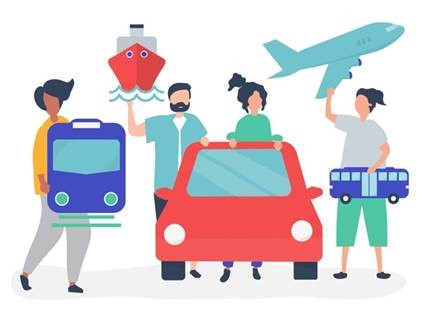
Accommodations
Check your accommodations’ COVID-19 prevention practices before you go:
· Enhanced cleaning procedures
· Social distancing measures
· Masking of staff and guests
· Contactless payment
· Protocol in case a guest becomes ill, such as closing the room for cleaning and disinfecting
Once you arrive at your room, disinfect high-touch surfaces, such as doorknobs, light switches, countertops, tables, desks, phones, remote controls, and faucets. Wash plates and cups before using.
Make a packing list
· Face masks
· Tissues
· Alcohol-based hand sanitizer (at least 60% alcohol)
· Disinfectant wipes (at least 70% alcohol) for surfaces
· Thermometer
Considerations for people at increased risk
Anyone can get COVID-19, but older adults and people of any age with certain medical conditions are at increased risk for severe illness.
Conditions that increase your risk include cancer, chronic kidney disease, chronic obstructive pulmonary disease, Down syndrome, serious heart problems, weakened immune system, obesity, pregnancy, sickle cell disease, smoking, and type 2 diabetes.
Travel increases your chance of getting and spreading COVID-19.
Remember safety first
Stay home if you or your companions:
· Are sick or think you have COVID-19 even if you don’t have symptoms
· Are waiting for results of a COVID-19 viral test
· Have been diagnosed with COVID-19 even if you don’t have symptoms
· Have been around someone with suspected or diagnosed COVID-19 in the past 14 days even if that person didn’t have symptoms
Should you travel right now?
Ultimately, it’s up to you. Just keep the risks in mind when making the decision. If you’re sick or at higher risk for the coronavirus, it is probably best to stay home. The same goes for any friends or family members who want to travel with you. If you do choose to travel, it can be done safely by sticking to the basics.
